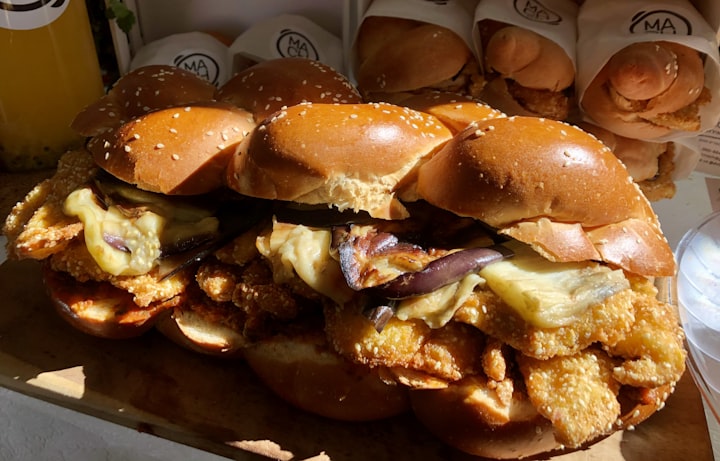How to lose weight fast: 9 scientific ways to drop fat
How to lose weight fast: 9 scientific ways to drop fat

Losing weight can be a challenging task, but with the right approach, it is possible to drop fat quickly and effectively. Here are 9 scientific ways to lose weight fast:
Create a calorie deficit: The most important step in losing weight is creating a calorie deficit, which means burning more calories than you consume. One way to do this is by reducing your daily calorie intake through a healthy diet.
Increase protein intake: Increasing your protein intake can help you to feel full and satisfied, which can help you to reduce your calorie intake and achieve weight loss. Aim to include a source of protein in every meal and snack.
Lift weights: Resistance training, such as weight lifting, can help you to build muscle and increase your metabolism, which can lead to greater weight loss and better overall health.
High-intensity interval training (HIIT): High-intensity interval training (HIIT) is a form of cardio that alternates between short bursts of intense activity and recovery periods. This type of exercise has been shown to be particularly effective for weight loss.
Drink water before meals: Drinking water before meals can help you to eat less, as it can help to reduce hunger and curb cravings. Aim to drink a glass of water before each meal.
Get enough sleep: Getting enough sleep is crucial for weight loss, as it can affect your hormones that regulate hunger and metabolism. Aim for at least 7-8 hours of sleep per night.
Use smaller plates: Eating larger portions than you need can lead to overeating and weight gain. Be mindful of portion sizes and use smaller plates to control the amount of food you eat.
Eat more fiber: Eating enough fiber can help you to feel full and satisfied, which can help you to reduce your calorie intake and achieve weight loss.
Avoid processed foods: Processed foods are often high in calories and low in nutrients, so it's best to avoid them as much as possible. Instead, focus on eating whole, unprocessed foods.
Keep track of your progress: Tracking your progress is an important part of any weight loss journey. Keeping a food diary and measuring your weight regularly can help you to stay motivated and on track.
Avoid liquid calories: Liquid calories from sugary drinks, such as soda and juice, can add up quickly and contribute to weight gain. Instead, choose water, unsweetened tea, or coffee.
Don't skip meals: Skipping meals can lead to overeating and weight gain. Instead, aim to eat regular, balanced meals throughout the day.
Don't restrict certain food groups: Restricting certain food groups, such as carbohydrates or fats, can lead to nutrient deficiencies and make it harder to stick to your diet. Instead, focus on eating a balanced diet that includes a variety of nutrient-dense foods.
Get social support: Having a support system in place can make it easier to stick to your weight loss goals. Reach out to friends and family for support, or join a weight loss group or online community.
Be patient: Losing weight fast is possible, but it's important to be patient and to set realistic and achievable goals. Remember, weight loss is a journey, not a destination, and it takes time and effort to see results.
Try a Low-carb diet: Low-carb diets have been shown to be effective for weight loss as they can help to reduce appetite and lower calorie intake.
Use natural appetite suppressants: Foods like fish, nuts, and fruits, contain natural appetite suppressants that can help to reduce hunger and cravings.
Try a Mediterranean diet: A Mediterranean diet, which is rich in fruits, vegetables, whole grains, lean proteins, and healthy fats, has been shown to be effective for weight loss.
Take supplements: Some supplements, such as green tea extract, conjugated linoleic acid (CLA), and glucomannan, have been shown to aid weight loss. However, it's important to note that supplements should be used in addition to a healthy diet and regular exercise, not as a replacement.
Seek professional help: If you're having trouble losing weight, it may be helpful to seek professional help. A dietitian or a personal trainer can provide guidance and help you create a personalized weight loss plan.
About the Creator
Yassine Nouri
I am a tech and crypto enthusiast interested in the latest developments in cryptocurrency and technology. I also enjoy exploring the intersection of technology and various industries.(Drones,Robotics,Machineries,Foods And Fitness, Animals).





Comments
There are no comments for this story
Be the first to respond and start the conversation.